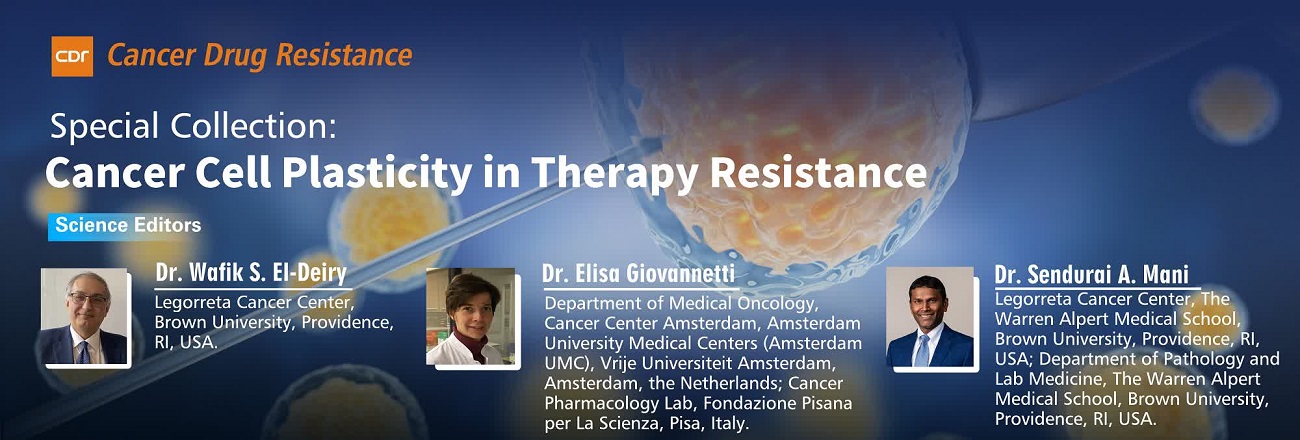
Collection: Cancer Cell Plasticity in Therapy Resistance
Science Editors

Collection Scope
Accumulating evidence suggests that the plasticity of cancer cells, including cancer stem cells (CSC), plays a pivotal role in therapy resistance, leading to treatment failures and disease relapses. Plasticity also plays a role in the transition between stem-like and non-stem-like states; CSCs have emerged as crucial players in cancer biology, possessing unique properties such as self-renewal, multi-lineage differentiation, and tumorigenic potential. These cells are believed to be responsible for tumor initiation, maintenance, and recurrence, rendering them a formidable challenge in cancer treatment.
This special collection is dedicated to investigating the intricate relationship between cancer cell plasticity and therapy resistance, aiming to unravel the underlying molecular mechanisms and identify novel therapeutic strategies to overcome treatment obstacles.
The articles presented in this collection will explore the dynamic nature of cancer cells and cancer stem cells, highlighting their ability to adapt to changing microenvironments, evade immune surveillance, and resist conventional therapies. Particular attention will be paid to the role of key signaling pathways, epigenetic regulation, and microenvironmental cues in driving cancer cell plasticity and therapy resistance.
Regarding cancer stem cells, this collection will focus on specific therapeutic approaches targeting plasticity in preclinical and clinical studies. The potential of combination therapies, immunotherapies, and novel targeted agents to eradicate therapy-resistant cancer stem cells will be explored, with a focus on translating these findings into clinical applications.
The shifting phenotype associated with tumor cell plasticity represents one of the greatest challenges in cancer therapy. The epithelial-to-mesenchymal transition (EMT) described by Sendurai Mani when he was a post-doctoral fellow at MIT (now an Associate Director of Translational Oncology at the Legorreta Cancer Center at Brown University) and Robert Weinberg (MIT) is a clear demonstration of cellular plasticity associated with the metastatic process. Plasticity was recognized and named as a hallmark of metastasis by Danny Welch (University of Kansas NCI-designated Comprehensive Cancer Center) and is now as of Doug Hanahan’s latest description in Cancer Discovery in 2022 one of the 14 hallmarks of cancer being joined by epigenetic alterations, microbiome changes and senescence. It is only by free and open exchange of knowledge, and widespread international collaboration that we have a chance to accelerate progress against cancer as described in the 2023 US National Cancer Institute National Cancer Plan. This is also essential to address the goals of the Cancer Moonshot, the Cancer Grand Challenges and to attempt to prevent cancer using the most innovative strategies.
By shedding light on the latest therapeutic breakthroughs, the articles in this collection seek to accelerate progress towards the development of innovative treatment strategies that can overcome therapy resistance and improve patient outcomes.
Following initial triage, suitable manuscripts submitted to this Special Collection will undergo external peer review.
Keywords
Deadline for Submission: Ongoing
Submission Information
For Author Instructions, please refer to https://www.oaepublish.com/cdr/author_instructions
For Online Submission, please login at https://www.oaecenter.com/login?JournalId=cdr&SpecialCollectionId=12
Contacts: Susan Song, Managing Editor, [email protected]













